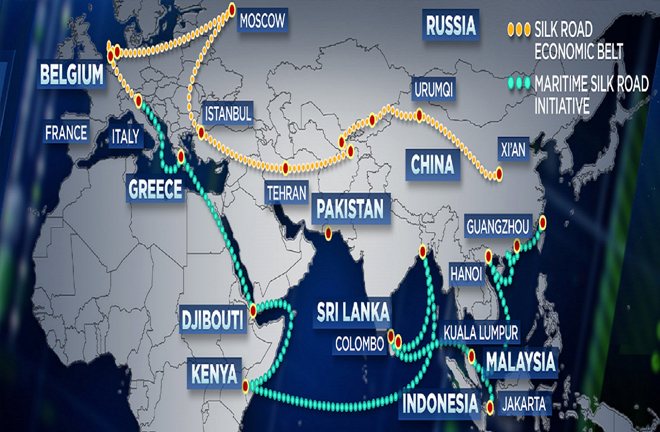A new era of development for maritime anthropology begins

The B&R opens space for the cross-regional development of maritime anthropology. Photo: XINHUA
Maritime anthropology is a discipline that studies the behavior and culture of marine society from an anthropological perspective. It has important practical significance for humanity’s better understanding of oceanic social and cultural features and its establishment of a harmonious relationship with the ocean. The Belt and Road initiative (B&R) has drawn worldwide attention to marine research, and China’s maritime anthropology has also ushered in new developments.
Marine civilization is an important part of human civilization, and the B&R has created more convenient conditions for cross-regional maritime anthropological research. Zhang Xianqing, a professor at the Department of Anthropology and Ethnology of Xiamen University, said that in history, China’s marine communities have carried out many large-scale marine activities along the Maritime Silk Road and accumulated rich marine knowledge. Many marine classics, represented by the Eastern and Western Nations written by Zhang Xie (1574–1640), a Fujian-born scholar from the Ming Dynasty, recorded the study of the Maritime Silk Road by our ancestors and deepened people’s oceanic understanding at that time.
In recent years, the proposal of the B&R has enabled the rethinking of the social and cultural conditions of countries along the Maritime Silk Road as important maritime anthropology research subjects. Zhang said that for many countries along the Maritime Silk Road, social development is closely related to the ocean. At present, China hopes to more actively interact with countries along the road. Therefore, it is necessary to conduct more detailed research on their political, economic and cultural environments and enhance mutual understanding of the concept of “a community of shared future for humanity.”
Liu Li, an associate research fellow at the School of Sociology and Anthropology of Sun Yat-sen University, said that in terms of ocean and fishery society, early anthropologists were more attracted by the exotic customs of distant foreign countries. The collection of marine folklore was the main marine study subject. With the developments in marine society, relatively closed fishery societies have had increasing contact with the outside world, and anthropologists have begun to study the economic, religious, psychological and other aspects of fishery societies. Maritime anthropology is no longer limited to small-scale field observations but extends to more complex issues such as migrant population, trade, and marine resources utilization.
Ocean studies are an important dimension to consider when building the B&R, which is of great significance for building a community of shared future for mankind. Zhang added that the study of maritime anthropology must first have an international perspective to grasp the frontier trends of this discipline’s development in a timely manner. Secondly, we must actively build a maritime anthropology with Chinese characteristics. In addition, maritime anthropology should be closely integrated with current national maritime strategy to strengthen the practical application of the discipline.
Liu added that ocean studies are more complex than that of the land, and interdisciplinary exchanges can help scholars broaden their research horizons. Scholars must discover more propositions of value through rational speculation. Based on existing research results, scholars should make full use of new scientific and technological methods to promote the development of maritime anthropology.
Marine policies, such as marine resource development, marine environmental protection, marine tourism and maritime rights and interests, are all closely related to the lives of local people. Liu said that the advantage of the work of marine anthropologists is the provision of solutions to realistic problems. In addition, cross-regional and cross-country cooperation is improved with the participation of maritime anthropologists.
Zhang said that as an applied sub-discipline, the development of maritime anthropology in China not only assembles a large number of marine ethnographic materials based on in-depth field investigations, but also enhances people’s understanding of marine social culture and promotes the development of the marine social sciences in China. Moreover, it can provide theoretical guidance and practical solutions for marine hotspot issues such as marine biological and cultural diversity protection, marine management, marine ecological restoration, marine disaster rescue, and marine heritage conservation. More importantly, maritime anthropological research has far-reaching significance for inheriting and developing China’s marine civilization and building China’s system of ocean discourse.
(edited by YANG LANLAN)
